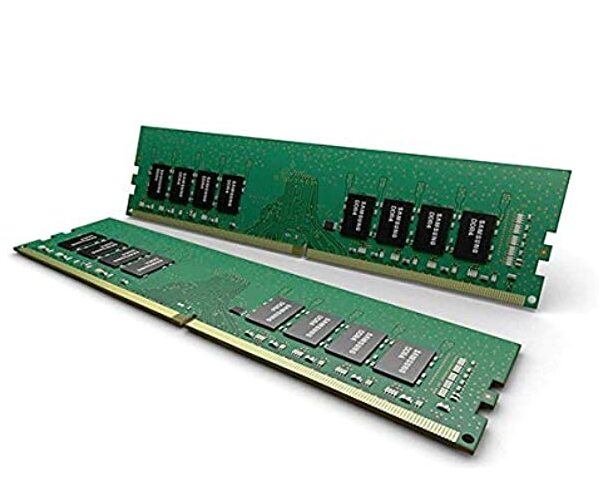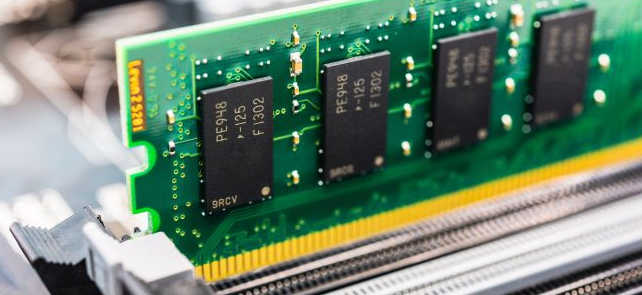Our PC memory system complies with two major memory types, which are physical memory and virtual memory. In the upcoming sections, we would go further into the physical memory, which is RAM, specifically a complete guide on how to choose the most suitable RAM for your PC. There is a huge set of considerations to take. Thus, we advise that you read the information carefully and don't miss any piece of the acknowledgment if you are new to all of these concepts.
1. Memory Size and Speed
RAM, as we have known it, is the Random Access Memory. It is the physical memory in the whole PC memory system, as we have aforementioned. RAM misconceptions usually refer to the myth that the greater memory size your RAM is, the more effective performance your PC would put on.

However, this is not always the same case. RAM is evidently a key factor impacting your PC performance. But it is not only the memory size that matters. Also, the bigger the better is not always applicable. For instance, if you just normally use a PC for basic browsers and word tasks, an enormous RAM of 64GB would be a waste. The case is vice versa for more heavy-duty tasks. This leads to one conclusion that the most ideal RAM is the one that offers the greatest sense of compatibility, not "the bigger the better".

Back on the factors of performance influence. RAM impacts your PC's performance based on two reasons: Memory size and speed. Explaining further about memory sizes, we have a few options as follows: 2 to 4 GB, 4 to 6 GB, 6 to 8 GB, and 8 plus GB. The 2 to 4 GB is the basic standard for one RAM. This currently does not make the most common option for any user due to its performance limits. The next two 4 to 6 and 6 to 8 are more widely used because they can adapt to most basic tasks on PC. The final one is the 8+ GB, which usually appears in heavy-duty work. Hence, for the capacity part, we hope you have an idea about which memory size your PC may be suitable for.

Next, we come to the memory speed, which plays a huge part in the performance of your PC. Normally, RAM speed would vary from as low as 1333 MHz to 3600 MHz. the MHz is the short version of Megahertz, referring to the millions of circles every second. The case for memory speed is pretty similar to that of memory size. If you are using a PC at an entry level, a speed of 2300 to 3000 Mhz is not a bad way to start with. The more workload you have, the greater speed is to be selected.
2. More Specifications Of RAM You Need To Know
3 Common Form Factors Of RAM
There are three types of RAM available now on the market. All of them have their own features. Check the information below to understand them more and decide which one suits you the best.
UDIMM

This is the most widely distributed RAM type in the PC industry. The U stands for Unbuffered or Unregistered in general. When you see a RAM is informed as DIMM, it is likely to belong to the UDIMM classification.
SO-DIMM

SO-DIMM is the second runner in the world of RAM. The SO is a short name for Small Outline. As a result, the SO-DIMM RAM is basically the less significant version of the UDIMM type. SO-DIMM can be Unregistered, similarly to the UDIMM, and this type is often what laptop users wish to purchase.
MicroDIMM

The last type is called the MicroDIMM. It is the smallest version of the UDIMM, which is even less significant than the Small Outline. The MicroDIMM is not common for all PC or laptop users. However, they are applicable for certain smaller computing devices.
DDR Specifications
You would easily catch sight of DDR4 RAM. So what is DDR? DDR stands for Double Data Rate technology, replacing the Single Data Rate (SDR RAM). There are DDR2, DDR3, DDR4, and DDR5. The most commonly used RAM nowadays is the DDR4. DDR2 and DDR3 RAM are regarded as outdated versions of DDR4, while DDR5 or higher is still something of the unicorn.
Other References
Several of the further factors you need to pay attention to would be listed below. If you have reached this part of the article, we believe that you have got yourself a pretty clear image of what type of RAM would suit you the most. Some other references you need to see would be presented as follows:
ECC

ECC is Error Checking and Correction, which is a special feature of RAM, monitoring the process of data transferring, processing, and ensuring that no error occurs during the whole period. Most RAM does not come with the ECC feature, unfortunately. But if your usage demands are remarkable, and heavy-duty tasks are constantly involved, find yourself an item with the ECC feature for enhanced performance.
Voltage
Voltage is not the biggest matter you must mind when purchasing RAM for your PC. Modern RAM models nowadays consume power on a highly efficient level. You can check this specification from the maker or websites where you purchase your RAM.
Heat Spreader

RAM is a key component in the operation process of your PC. it works non-stop, and as a result, it needs cooling like any other part. As you purchase your RAM, a typical cooling case is perhaps enough for the job. But if you belong to the high-performance requiring group, you must find RAM with a heat spreader built-in. Keep in mind that a heat spreader is another name for the heatsink.
Height
The height of a RAM stick refers to its physical measurement, rather than how tall it actually is. People usually don't have to take much notice of the RAM's height if they do with standard devices. Nonetheless, if you are on a small form factor device, you should take note of this reference and double-check before making any payment.
3. Some Tips For RAM Shoppers
Last but not least, we would love to inform you of some tips we have collected during our time of research and examination. When purchasing RAM for your PC, you can determine a good RAM stick following the tips below.
- The 16GB RAM is now the most should-purchased in the whole market for its affordability and stable performance. It is now called the sweet spot.
- Your system should be able to support the RAM clock speeds you pay for, or the whole purchase would have to be re-made
- Heat spreaders are not for show only but the lighting is not the case. Heat spreader as aforementioned is crucial for those of heavy work. The lighting is not so helpful for users, as we assess.
Conclusion
Here comes the end of our article on how to choose RAM for your PC. Although the information can be overwhelming to some shoppers, we believe that slowly inking over the whole thing would give you a clearer idea. We did our best to keep it brief and clear since we know that there are people who have yet to know well about every concept mentioned. The key to the best item that can be purchased is still the same: you should not always go for the more superior, but the more compatible.











